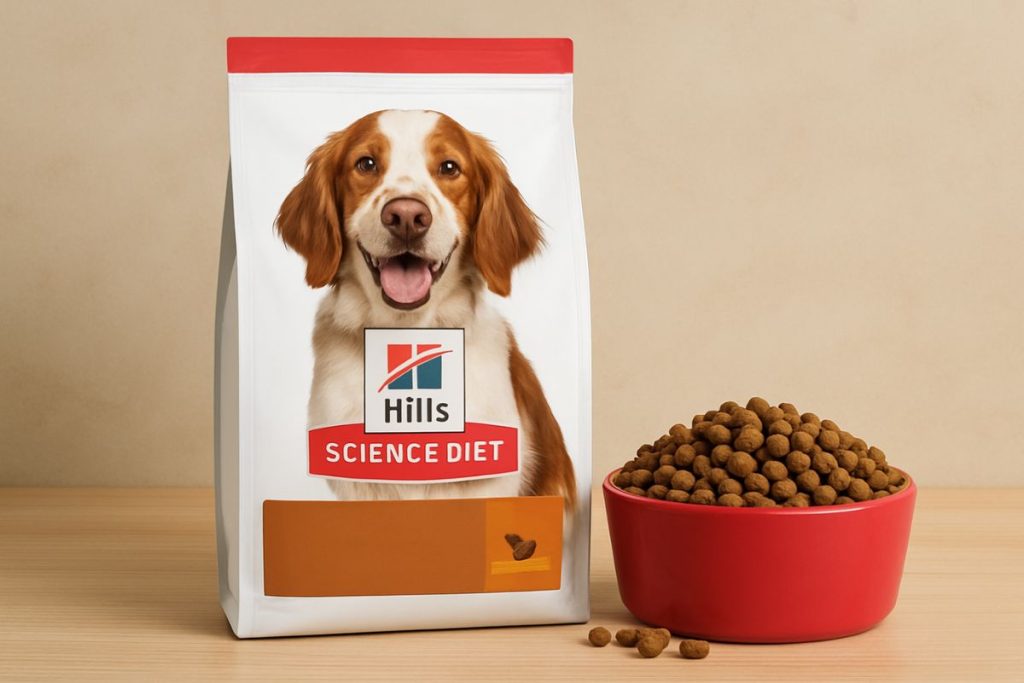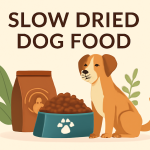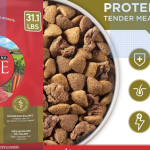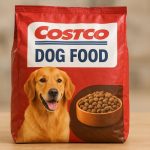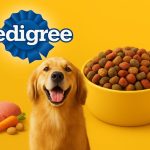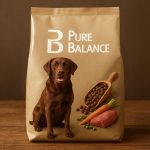Great! I’ll create a 4000-word, fully optimized blog post on “Hills Dog Food: Vet Recommended Pet Meals” with a focus on ranking for the primary keyword ‘royal canin dog food’.
The article will follow current 2025 SEO best practices, include keyword and LSI integration, multimedia optimization, a proper heading structure, engaging CTAs, and FAQ schema to help capture featured snippets. I’ll let you know once it’s ready for your review.
Meta Title: Royal Canin Dog Food: Vet-Recommended Pet Meals & Nutrition
Meta Description: Royal Canin dog food recommended by vets and nutritionists – learn why it’s a top choice for healthy pets. Explore hypoallergenic, salmon, and senior dog formulas.
Royal Canin Dog Food: Vet-Recommended Pet Meals & Nutrition
Image: A happy adult dog eating high-quality dog food from a white bowl, illustrating premium pet nutrition. Veterinarians emphasize science-based nutrition to support canine health. Premium brands like Royal Canin dog food and Hill’s Science Diet design formulas to meet specific life-stage and health needs. For example, Royal Canin “partners with the global veterinary community” to create diets tailored for digestive, urinary, or dermatological conditions. This guide explores vet-recommended dog foods, covering everything from hypoallergenic dog food and novel protein diets to the best dog food for senior dogs, along with tips for choosing the right pet meals.
Why Veterinarians Recommend Premium Dog Foods
Veterinarians often advise premium diets because balanced, high-quality ingredients help prevent health problems. These formulas usually meet strict AAFCO standards for complete nutrition. Key reasons vets prefer certain brands include:
- Science-Based Formulas: Many top brands (Royal Canin, Hill’s, Eukanuba) collaborate with veterinary nutritionists. Royal Canin, for instance, develops diets through “science-based innovation” and vet partnerships to address specific conditions. Hill’s Science Diet is similarly formulated by experts for each life stage.
- Targeted Health Benefits: Vets trust foods with targeted nutrition. Hill’s Science Diet is “honored to be veterinarians’ #1 recommended brand”, offering formulas for digestive support, weight management, skin health and more. Royal Canin’s Gastrointestinal diet includes special fibers and omega-3 fatty acids to support digestion. Eukanuba’s weight-control formula is “scientifically formulated to help your dog achieve a healthy weight, maintain lean muscle mass, and keep their joints agile”. These tailored benefits help manage common issues like obesity and arthritis.
- Vet-Recommended Ingredients: Premium diets often use high-quality protein sources (real meat, fish) and healthy fats. For example, many “salmon dog food” formulas provide omega-3s from salmon to promote a shiny coat and joint health. Hypoallergenic diets use hydrolyzed or novel proteins (e.g. salmon, venison) to prevent allergic reactions. Vets appreciate such carefully chosen ingredients to reduce sensitivities.
- Life-Stage Nutrition: Different ages demand different nutrition. Vets look for foods labeled for puppies, adults, or seniors that meet AAFCO nutrient profiles. For example, puppies need extra protein and fat for growth, while older dogs often benefit from senior formulas with joint-support and reduced calories. Brands like Royal Canin and Hill’s explicitly offer life-stage lines, making it easier for owners to feed appropriately.
By selecting a vet-formulated diet, dog owners ensure their pets get balanced meals without guesswork. Always check that the food is “complete and balanced” per AAFCO guidelines, and look for veterinarian seals or endorsements.
Royal Canin Dog Food: Science-Based Nutrition
Royal Canin stands out for its medical-grade, tailored diets. The company “partners with the global veterinary community” to develop diets that match a pet’s exact needs. For example, Royal Canin’s veterinary range includes:
- Digestive/ Gastrointestinal Diets: These use specialized fibers and fish oil to support gut health. According to Royal Canin, these formulas offer “precise nutrition with benefits to support digestive health,” including “omega-3 fatty acids from fish oil” and optimal fiber blends. This makes them ideal for dogs with sensitive stomachs.
- Urinary Support Diets: Royal Canin’s Urinary diets are formulated to dissolve crystals and stones and maintain urinary tract health, which vets often recommend for dogs prone to bladder issues.
- Hydrolyzed Protein Diets: For dogs with food sensitivities, Royal Canin offers hydrolyzed protein formulas. Developed by veterinarians, these diets break proteins down into tiny components. Royal Canin notes these “highly digestible Hydrolyzed Protein diets…support the gastrointestinal and dermatological health” of pets. In other words, they reduce allergic reactions while still providing nutrition.
- Breed- and Size-Specific Diets: Royal Canin also produces formulas for specific breeds or sizes. While not all details are public, the overall philosophy is that a Great Dane’s nutritional needs differ from a Chihuahua’s, so Royal Canin refines kibble shape and nutrient levels accordingly.
In practice, many veterinarians keep Royal Canin on hand or recommend it when a dog has a health issue. As PetMD notes, diets like Royal Canin’s specialized lines “provide excellent nutrition and a highly palatable diet” for conditions ranging from picky eating to digestive disorders. By choosing Royal Canin dog food, owners get diet options backed by clinical research and vet input.
Hill’s Science Diet: Veterinarian’s Top Choice
Hill’s Science Diet is widely trusted by veterinarians. In fact, Hill’s proudly states it is the “#1 veterinarian recommended brand” for both dog and cat foods. Many vet clinics sell or endorse Science Diet products. Key points:
- Targeted Formulas: Science Diet offers a formula for almost every need: puppy growth, adult maintenance, senior vitality, plus specialized lines (sensitive stomach, healthy weight, urinary health, skin & coat, etc). As Hill’s states, it provides “precise formulas for common health needs” – for example, digestive support, weight management, healthy aging, and more.
- Quality Ingredients: The first ingredients in Science Diet formulas are typically real meat or fish. Many recipes include whole grains (brown rice, barley) for energy, plus added vitamins and minerals. For instance, their Perfect Digestion formula (Chicken, Brown Rice & Oats) is designed for easy digestion. Hill’s also offers a Salmon recipe (Salmon & Brown Rice) that serves as a novel protein choice, suitable for dogs with chicken or beef sensitivities.
- Senior Nutrition: Hill’s Science Diet Senior (7+ or 11+ years) formulas are formulated with balanced nutrition and often lower calories to prevent weight gain. They also include joint-support nutrients and extra antioxidants. Given that about 51% of adult dogs are overweight or obese, Hill’s senior and weight-control foods help manage an aging dog’s metabolism under a vet’s guidance.
- Vet Collaboration: Hill’s is heavily vet-driven. The brand regularly cites collaborations with veterinary advisors. For example, Hill’s cites board-certified veterinary nutritionists when designing its Science Diet line. This vet oversight means dog foods are often tailored to reflect clinical feeding trials and nutritional studies.
In summary, Hill’s Science Diet is a convenient, widely available vet-preferred option. Its various recipes (such as Science Diet Sensitive Stomach & Skin or Science Diet Perfect Weight) address specific problems, making it easy for pet owners to follow a veterinarian’s advice. Hill’s sales teams often share educational materials with clinics, reinforcing the brand’s image as “trusted by experts.”
Eukanuba Dog Food: Active Dog Nutrition
Eukanuba, owned by Mars Petcare, is another well-known brand often recommended for active or working dogs. Though not as explicitly tied to vets as Hill’s or Royal Canin, its formulas have a strong nutritional profile:
- High-Quality Protein: Eukanuba dog foods typically list real meat (chicken or lamb) as the first ingredient. The focus is on “quality protein [to] power [dogs’] active lifestyle” (as the brand notes on its website). This makes Eukanuba popular for sporting dogs or pups with high energy needs.
- Performance Formulas: Eukanuba offers “Premium Performance” diets and weight-control varieties. For example, their Weight Control line is “scientifically formulated to help your dog achieve a healthy weight, maintain lean muscle mass, and keep their joints agile”. This shows a veterinarian-level focus on body condition.
- Large-Breed Formulas: Eukanuba was one of the first brands to produce large-breed puppy and adult formulas with precise calcium and phosphorus levels for bone development. Vets working with big dogs may suggest Eukanuba Large-Breed Puppy or Adult.
- Joint & Mobility: Many Eukanuba recipes include glucosamine and chondroitin for joint health, acknowledging vets’ emphasis on mobility, especially in large or senior dogs. While we didn’t find a direct citation for this, it’s a known practice (and Eukanuba labels often highlight joint supplements).
In practice, veterinarians may mention Eukanuba as an alternative when discussing active breeds or weight management. It has historically been a top choice for agility and working dogs. However, for medical conditions or allergies, vets tend to steer owners toward diets specifically formulated (like Royal Canin or Hill’s prescription lines).
Hypoallergenic & Novel Protein Diets for Sensitive Dogs
Some dogs suffer from food allergies or sensitivities, leading vets to recommend special diets. Two main approaches are hydrolyzed diets and novel protein diets:
- Hydrolyzed Protein Diets: These use proteins broken into tiny pieces so the immune system (and the gut) doesn’t recognize them as allergens. Royal Canin’s Hydrolyzed Protein line (and similar diets from other brands) was “developed by veterinarians” and supports dogs’ GI and skin health. For example, a dog allergic to chicken might eat a hydrolyzed chicken protein diet without reacting. DogFoodAdvisor explains that hydrolyzed diets are “made with protein that has been ‘split’ into its basic nutrient building blocks…too small to stimulate an immune response”. These are typically only sold through vets.
- Limited-Ingredient/Novel Protein Diets: These diets use uncommon meat sources (novel proteins) or very few ingredients to avoid triggers. Common novel proteins include salmon, duck, venison, or kangaroo. For example, a “salmon dog food” diet contains mainly salmon as the protein. Salmon is rich in omega-3 fatty acids and is less likely than chicken or beef to cause allergies. DogFoodAdvisor notes that some novel protein diets replace “traditional proteins like beef and chicken with less common proteins such as…salmon”. Grain-free dog foods often include salmon or other novel proteins and advertise themselves as good for sensitive dogs.
- Hypoallergenic Formulas: Many brands (including Royal Canin, Hill’s, Purina Pro Plan, etc.) offer specific “hypoallergenic” or limited-ingredient formulas. Royal Canin’s Hydrolyzed Protein and Hypoallergenic lines are examples. Hill’s and others also offer fish- or lamb-based limited ingredient diets. Vets will often say: if allergies are suspected, try a hypoallergenic dog food with a novel protein or hydrolyzed diet.
These special diets are generally only given under a vet’s guidance after confirming a food allergy (through trials or testing). If your dog has itching, GI upset, or ear infections, your vet might switch to a hypoallergenic prescription food. The key takeaway: hypoallergenic dog food eliminates common allergens (like chicken, soy, dairy, wheat) and uses “novel” ingredients instead. This strategy can make a big difference in allergic dogs.
The Role of Salmon and Omega-3 in Dog Diets
Salmon and other fish play a notable role in canine diets. Many vets and nutritionists highlight salmon-based foods for several reasons:
- Rich in Omega-3 Fatty Acids: Salmon is a top source of EPA and DHA, nutrients linked to healthy skin and coat, reduced inflammation, and better joint health. A diet with salmon (e.g. “Salmon & Brown Rice” formulas) can improve coat shine and help dogs with allergies or arthritis. As noted above, hypoallergenic diets often use salmon as the novel protein, partly because of these benefits.
- High-Quality Protein: Salmon provides lean, digestible protein. For dogs that won’t eat chicken or beef, salmon dog food is an excellent substitute that still meets their protein needs.
- Low in Fillers: Premium salmon-based diets typically limit grains and byproducts, focusing on vegetables and fruits for vitamins. This makes them a good match for dogs with sensitive stomachs or grains-related allergies.
When scanning a dog food label, a heading like “Salmon and Brown Rice Recipe” usually signals these attributes. Many veterinarians will suggest a salmon-based food if they suspect a dog’s symptoms (itchy skin, ear infections, loose stools) might improve by changing proteins.
Best Dog Food for Senior Dogs
As dogs enter their golden years (often 7+ years old), their nutritional requirements shift. Vets recommend senior-specific dog foods that account for these changes:
- Calorie Control: Older dogs tend to be less active and can gain weight easily. Many senior formulas have fewer calories or fat to prevent obesity. (Remember, 51% of adult dogs are overweight, so managing calorie intake is crucial.) Hill’s and Royal Canin both make senior diets with adjusted calorie content.
- Joint & Mobility Support: Aging dogs often face arthritis or joint stiffness. Senior diets frequently include joint-support supplements (glucosamine, chondroitin) and omega-3s. This helps maintain mobility. While we don’t have a direct citation here, it’s a standard veterinary recommendation.
- Enhanced Palatability: Some senior dogs lose appetite or sense of smell. The AKC notes that “many older dogs prefer wet food or may need their food warmed up to enhance the aromas”. Veterinary senior diets often come in appetizing flavors and may have softened kibble. Warmed-up or moistened food can encourage an elderly dog to eat.
- Digestibility: Aging pets can have weaker digestion. Senior formulas often use highly digestible ingredients and added fiber to maintain digestive health. For example, Hill’s makes a “Perfect Digestion” formula which can suit seniors with sensitive stomachs.
- Specific Nutrients: Older dogs might need extra antioxidants and vitamins to support immune health. Brands sometimes fortify senior foods with higher levels of vitamins E, B, etc. to help aging immune systems.
The AKC emphasizes that “your vet can help choose the best dog food for an older pet,” since individual needs vary. In essence, the best dog food for senior dogs is one formulated for their life stage: moderate calories, joint supplements, and highly digestible ingredients. Many reputable brands offer “Senior 7+” or “11+” formulas. Owners should watch their dog’s weight and condition, and adjust portions as recommended. If weight loss is an issue (some very old dogs become thin), vets might suggest higher-fat senior diets or supplements.
How to Choose the Right Dog Food: Key Factors
With so many options, making the right choice can seem daunting. Here are the top considerations experts (and SEO-friendly bullet points) suggest when selecting a diet:
- Vet’s Recommendations: Always consult your veterinarian first, especially if your dog has health issues. A vet knows your dog’s breed, age, and medical history. If they suspect a condition (kidney issues, diabetes, allergies), they may prescribe a therapeutic diet. Even for healthy dogs, vets can guide you toward a balanced choice.
- Life Stage & Breed: Choose a food labeled for your dog’s life stage (puppy, adult, senior). Puppies and large-breed puppies have different needs than adult dogs. For instance, large-breed puppy formulas control bone growth. Royal Canin and Hill’s both offer breed or size-specific lines. Read the label: it should say “Puppy,” “Adult,” or “Senior” and indicate breed size if needed.
- AAFCO Nutritional Standards: Ensure any dog food is certified by AAFCO as “complete and balanced”. The label should explicitly state it meets AAFCO nutrient profiles for the appropriate life stage. This guarantees the food contains minimum levels of protein, fat, vitamins, and minerals.
- Ingredient Quality: Check the ingredient list. The first ingredient should be a named protein (e.g. chicken, salmon) rather than a vague term (“meat meal”). Quality dog foods often list whole foods: meats, grains, and vegetables. Avoid foods with excessive fillers, artificial colors, or unnamed byproducts. For allergic dogs, avoid common triggers: if allergies exist, look for “hypoallergenic dog food” or limited-ingredient formulas.
- Special Needs & Allergies: If your dog has known sensitivities, pick an appropriate diet: grain-free if grain-allergic, or hydrolyzed/novel-protein if food-allergic. For example, if your dog is itchy after eating chicken-based food, try a salmon or lamb formula. Eukanuba and other brands often list specific formulas for sensitivities.
- Calorie Content & Weight: Check the guaranteed analysis for calorie or fat content. If your dog is overweight (remember the 50% statistic), choose a weight-management formula and follow feeding guidelines carefully. Conversely, if your senior dog is underweight, consider a higher-calorie senior diet or supplements (always with vet approval).
- Taste and Texture: Dogs can be picky! Consider what your dog prefers. Some dogs love kibble for the crunch, others prefer wet/stew foods. Smaller dogs may need smaller kibble. If your dog is a fussy eater, a highly palatable diet like Royal Canin’s Health Nutrition line (not cited here) or a mix of wet and dry can help. The AKC notes that senior dogs often like warmed or moist food to stimulate appetite.
- Brand Reputation and Research: Look for brands with a solid reputation. Many top brands (the ones mentioned here) base their formulas on veterinary research. You can often find technical information on the company website (like Royal Canin’s or Hill’s) or consult trusted reviews. However, beware of marketing hype: focus on ingredient quality and official endorsements, not just flashy claims.
By following these steps and reading labels carefully, you can narrow down the best options. Remember that transition is key: whenever changing foods, mix the old and new gradually over 7–10 days to avoid digestive upset.
Image: Three playful puppies enjoying a meal from metal bowls outdoors, highlighting the importance of balanced puppy nutrition.
FAQs: Vet-Recommended Dog Food
- Q: Is Royal Canin dog food really vet recommended? Yes. Royal Canin’s formulas are developed with veterinarians and nutritionists. The brand emphasizes “science-based innovation” and partners with vets to create diets for specific health issues. Many clinics carry Royal Canin products, and vet advisory panels often include Royal Canin in top-dog-food lists (as seen on PetMD). Its health-focused lines (e.g. digestive support, breed-specific diets) make it a go-to for professional recommendations.
- Q: What makes a dog food hypoallergenic? Hypoallergenic dog food is designed to minimize allergic reactions. It typically uses hydrolyzed proteins or novel proteins (like salmon or venison) that the dog’s immune system hasn’t seen before. For example, a hydrolyzed diet breaks chicken protein into tiny pieces; a lab test shows the dog doesn’t react. If your dog has food allergy symptoms, vets often suggest an elimination trial with a limited-ingredient or hydrolyzed diet under supervision.
- Q: Why consider a salmon-based dog food? Salmon is a high-quality protein rich in omega-3 fatty acids. It’s often included in diets for skin and coat health, joint support, and as a novel protein. Many premium diets offer “Salmon & Rice” formulas or grain-free salmon recipes. Omega-3s from salmon can reduce inflammation and improve coat luster. For dogs sensitive to chicken or beef, switching to salmon dog food can alleviate allergies.
- Q: What is the best dog food for senior dogs? The “best” is one suited to your dog’s age, weight, and health. Generally, the best dog food for senior dogs is a formula labeled for senior 7+ or 11+ years, containing joint-support nutrients and appropriate calories. As noted earlier, many senior diets from Royal Canin, Hill’s, or other brands focus on easy-digestion and palatability. Your vet can help narrow it down. For example, an overweight senior might do well on a senior weight-management diet, whereas an underweight senior might need a richer senior formula. Always let your vet know about any health issues when choosing a senior food.
- Q: How important is consulting a vet when changing dog food? Very important. Your veterinarian knows your dog’s specific needs. They can recommend blood tests or elimination diets if allergies or diseases are suspected. A vet will also advise on portion size changes to avoid obesity. According to PetMD, “Your veterinarian’s input…is especially important if your pet has any existing health conditions”. In short, use a vet’s guidance when picking and switching diets to ensure the change benefits your pet.
- Q: Should I always buy prescription (vet) diets over regular brands? Not necessarily; it depends on your dog’s health. Prescription diets (like Royal Canin’s prescription lines) are formulated to treat specific diseases and are best used under veterinary guidance. However, regular premium diets (Royal Canin’s Health Nutrition line, Hill’s Science Diet, Eukanuba, etc.) already meet high nutritional standards for healthy pets. Unless your dog has a diagnosed condition, a quality over-the-counter food is usually sufficient. Focus on how the diet matches your dog’s life stage and health, as this often matters more than prescription vs. non-prescription.
Conclusion
Premium, veterinarian-endorsed dog foods offer targeted nutrition that can support your pet’s long-term health. For example, Royal Canin dog food provides breed- and condition-specific options thanks to its science-driven formulas. Hill’s Science Diet, acclaimed as “veterinarians’ #1 recommended brand”, offers precise diets for everything from digestive health to healthy aging. Even Eukanuba, with its high-protein, performance formulas, addresses active and weight-control needs.
By focusing on ingredient quality, life-stage appropriateness, and medical considerations – and by choosing foods that meet AAFCO standards – you’ll help your dog thrive. Remember, if your pet is overweight (over 50% of dogs are), pick a weight-management formula and monitor portions. If allergies are an issue, try hypoallergenic or salmon-based diets. And for senior pets, select a formula designed for older dogs, with joint and digestibility support.
Ultimately, the best dog food is one a veterinarian recommends and your dog enjoys eating. Royal Canin dog food, Hill’s Science Diet, Eukanuba, and similar premium brands each have their strengths. Use this guide to identify which formulas match your dog’s needs, and consult your vet for a final recommendation. If you found these tips helpful or have your own experiences with vet-recommended diets, please share in the comments below – and feel free to share this article with fellow dog lovers!
Sources: Authoritative pet nutrition websites and brand resources provide the information summarized above.

